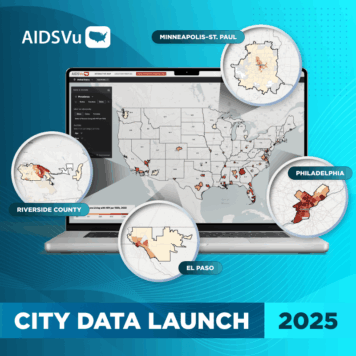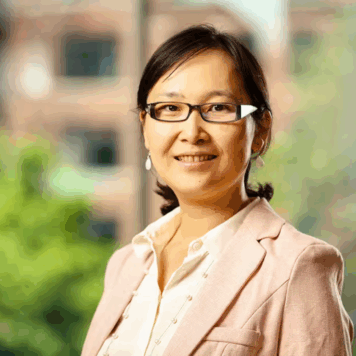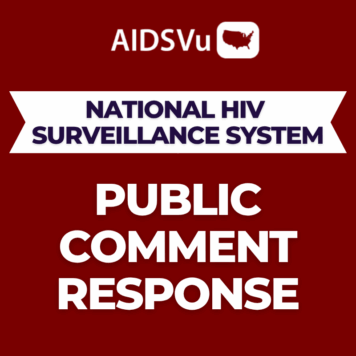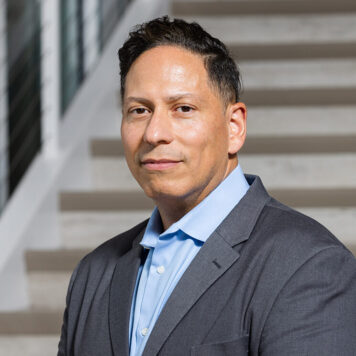Ifeoma Udoh, PhD, is the Executive Vice President for Policy, Advocacy and Science at the Black Women’s Health Imperative (BWHI) and is dedicated to moving the organization forward in its mission to achieve health equity and physical, emotional, and financial wellness for Black women.
You’ve worked in the public health field for over two decades trying to improve health outcomes for Black women and advance health equity. What drew you to this line of work?
I started my public health journey quite young, as we all do when we’re trying to figure out who we are going to be in the world and being influenced in different ways. I grew up in Southern California; my parents are both immigrants to this country. My mom was a labor and delivery nurse for 25 years and worked in public hospitals here in the United States, and I think watching her and learning from her was a huge influence in my life.
As an undergraduate, I was going to be pre-med until I took that first chemistry course, but also was really active and engaged in a community sense as a college student. I’m a member of Delta Sigma Theta, which believes in social service and sisterhood. After college, I shifted course and began thinking about community-based work and health and people. That was the beginning of moving my life’s work into thinking about public health. When I think about public health, I think about community and people.
I’m in the first generation of people who grew up in a world that knew what HIV was. I’ve been around the knowledge of HIV for a very long time. I’ve had friends that passed away from it, I went to college with kids that were living with HIV, I’m the generation that was raised knowing that there was an HIV/AIDS public health crisis in this country. I think those of us drawn to public health and drawn to that concept of health and community and advocacy and humanity were drawn into this work because we all needed to support the backbone of it. And I can’t express enough that I’ve learned from so many wonderful people in my career, from so many women scientists and advocates, from the Judy Auerbachs of the world, the Victoria Cargills of the world, the Dazon Dixon Diallos, to even my own boss, Linda Goler Blount. They have taught me the importance of being engaged in HIV.
The Black Women’s Health Imperative (BWHI) is the first and only national non-profit solely dedicated to achieving health equity for Black women globally. Why is it so vital to have an organization dedicated solely to the health of Black women?
It is vital because Black women still are at the forefront of many health disparities in this country and globally. There is no reason for that to be the case other than that our health systems have failed us. We are not biologically disposed to have health crises happen to Black women. The maternal child health crisis in the United States is not because Black women can’t birth healthy babies. The maternal child health crisis in the United States is because we have health systems that don’t listen to the needs of Black women. It’s vitally important that we have an organization like BWHI who holds that space around what do we know about the science, what do we know about the gap in policies that don’t work for us, and what we do say and advocate for to bring together science and policy and action to allow Black women to live and thrive in the way that they should. Just like everyone else, we deserve to live and thrive and be whole and happy. That’s why the work at BWHI is incredibly important.
Given that Black women continue to be disproportionately impacted by HIV, accounting for 54% of new HIV infections in U.S. women in 2021, despite making up 14% of the female population, what can organizations like BWHI do to improve health outcomes for women of color?
Those stats are alarming. When you hear that Black women are experiencing HIV at such disproportionate rates in this country, particularly when we have so many tools in our toolkit to prevent that from happening, it should wake people up. Once you know that this is the case, the question becomes, why are those tools not reaching Black women and what can we do better to ensure that they do? We need to ensure that the access to resources, particularly funding and prevention programs, are what they need to be to address the HIV epidemic among Black women. We have PrEP, we have PEP, we have interventions that work. The approach that really resonates is wrapping our support around the entire life experience of women. It’s about reaching out and having those important conversations on HIV prevention early on, not just when someone is already seeking care at a clinic.
BWHI has a long history of advocating for Black women in HIV prevention, including through campaigns like the I AM HIV Possible campaign. Can you tell us more about this campaign and how it increases access and uptake of PrEP?
The I am HIV Possible campaign is one of the most incredible pieces of work that I’ve had the opportunity to see develop. We use that language specifically to challenge the narrative of being either a person living with HIV or not being a person living with HIV. We’re all people, and I think addressing stigma in language is really still important, especially when we talk about the language used in the media around HIV, particularly in Black communities and how we get brought into that conversation.
This campaign celebrates the beauty and brilliance of Black women by creating a space for open and honest dialogue about our sexuality and the full spectrum of our lives. It’s about taking ownership of our power, broadening our sexual health toolkit, and considering all the options we have to protect and empower ourselves.
March 7 is National Women and Girls HIV/AIDS Awareness Day, an opportunity to highlight how HIV impacts girls, women, and transgender women across the U.S. What message do you have for the community on this day?
My message is that we are community. For us at BWHI, “women and girls” is inclusive across the full spectrum of gender. We must talk about what’s going on with our transgender sisters. We must talk about how we still live in a country where there are laws on the books that don’t allow gender fluid kids to go into the bathroom of their choice. We need to dive into the conversation about intersectionality and understand how it influences the continued impact of HIV on our communities. Highlighting March 7th is a chance to shed light on awareness, access, and education, making it all more approachable for anyone identifying as a Black woman or girl in this country. It’s about breaking things down in a way that speaks to everyone, empowering us to help finally put an end to this disease.




